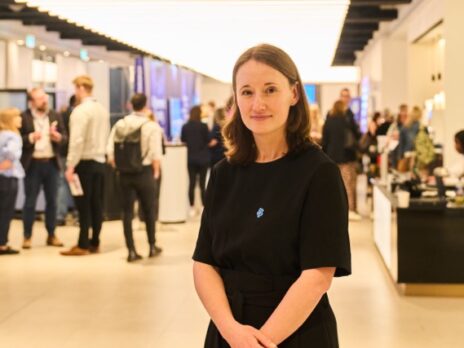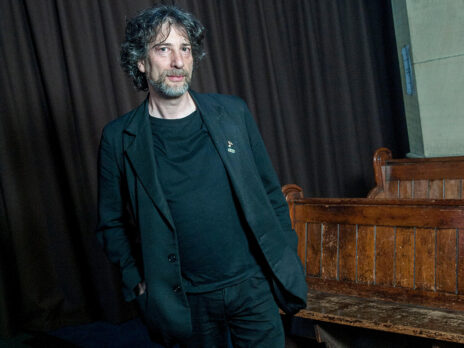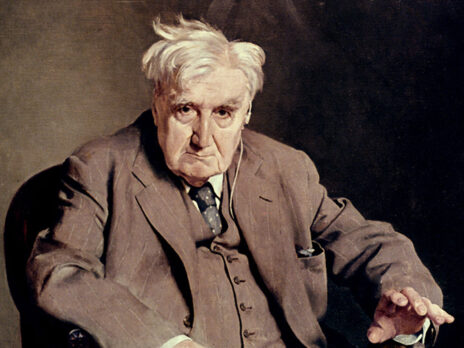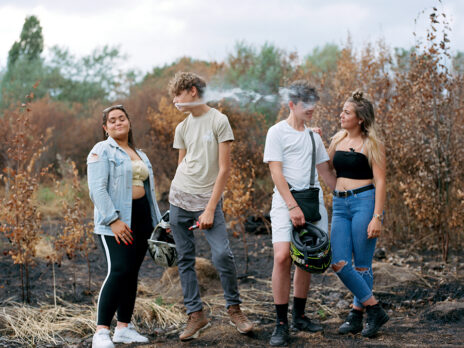
Non-fiction
Wild Thing: A Life of Paul Gauguin by Sue Prideaux
In her immaculate biography of Gauguin, Sue Prideaux deftly distances the painter from modern accusations of colonial sexual predation and places him firmly in his own time – they do things differently there. Her Gauguin is not a likeable character but he is one admirably single-minded in his pursuit of a different type of art. She traces his development in France and through his Pacific journeys as he sought both people and painting with a spiritual connection to the past. This is no apology but a clear-sighted and even-handed examination of what drove this singular man and his distinctive paintings.
Faber & Faber, 416pp, £30. Buy the book
Knife by Salman Rushdie
Salman Rushdie’s book is subtitled “Meditations After an Attempted Murder” and is an attempt to work through the attack on his life that took place in August 2022, leaving him with 15 stab wounds and blind in one eye. Writing Knife, he confesses, was his “way of taking ownership of what happened” and wresting it from his would-be assassin Hadi Matar. Rushdie’s thoughts are profound and mixed – there is a defence of free speech and reflections on the transience of life, the power of the will, and the corrosiveness of hate. What he never gives into, however, is anger.
Jonathan Cape, 224pp, £20. Buy the book
What Are Children For? On Ambivalence and Choice by Anastasia Berg and Rachel Wiseman
There are many reasons not to have children – climate change, self-fulfilment, economic insecurity, a menacing planet – so it is small wonder than many millennials are paralysed with indecision: to have a baby or not to have a baby? According to the authors, childbearing is “no longer a necessary part of human life” and they set out to show why it should be. Children may be challenging but they offer perfect love and a way of experiencing life most fully. Waiting for the right time to have children is pointless since motherhood is not an ending but a beginning.
Oneworld, 336pp, £20. Buy the book
The Haunted Wood by Sam Leith
Here Sam Leith examines the canon of children’s literature, from Aesop to JK Rowling, and what their stories say about the nature of childhood. As he works from the Famous Five to Mary Poppins and Narnia to Hogwarts, he looks at how they have formed an amalgam comprising joy and memory, values and nostalgia. More interesting still are the motivations and lives of the authors themselves, whether that be E Nesbit who adopted the children of her husband’s mistress, or Hugh Lofting composing Dr Dolittle in the trenches. Some of the great books were written for the authors as much as by them.
Oneworld, 592pp, £30. Buy the book
Facing Down the Furies: Suicide, the Ancient Greeks, and Me by Edith Hall
Edith Hall, a professor of Classics at Durham University, knows from experience what devastation a death by suicide can cause a family: she herself has suffered from depression and has been beset by suicidal thoughts. Her reading of Aeschylus, Sophocles and Euripides has been a boon, since they all imagine the effect on the survivors. “You’ve destroyed more than just yourself,” says Theseus to his dead wife Phaedra in Euripides’s Hippolytus. What these ancient authors told Hall was that her suffering was both understood and acknowledged. Her moral? The needs of others help keep us alive.
Yale, 256pp, £18.99. Buy the book
Character Limit: How Elon Musk Destroyed Twitter by Kate Conger & Ryan Mac
What lay behind Elon Musk’s $44 billion takeover of Twitter was not, according to the authors of this coolly effective bit of reportage, a planned-in-every-detail strategic vision but whim, ego, paranoia and promises of profit. As Musk played with his new toy, some 3,738 Twitter employees lost their jobs, advertisers fled the platform and the promises made to the banks began to look illusory. If you want to understand the thinking of the man who has become America’s kingmaker (and is reportedly turning his attention to British politics), this tale offers clues.
Cornerstone, 480pp, £25. Buy the book
Hardy Women: Mother, Sisters, Wives, Muses by Paula Byrne
Thomas Hardy, the creator of such memorable women as Tess Durbeyfield and Bathsheba Everdene, had complicated relationships with the real women in his life. There were a lot of them: as the literary biographer Paula Byrne notes, he was drawn to women throughout his life and they were drawn to him. There was a price to pay for his empathy, as his wives Emma and Florence discovered, but the writer was sincere in his interest, not least because it fed into his characters. This is a thoughtful interweaving of real-life emotion and fiction.
William Collins, 656pp, £25. Buy the book
To Run the World: The Kremlin’s Cold War Bid for Global Power by Sergei Radchenko
According to the historian Sergei Radchenko, what lay behind the Soviet Union’s behaviour in the postwar years was the search for international legitimacy underpinned by the understanding that this “was attainable through recognition either as a partner or as an adversary”. Stalin at Yalta leveraged power to demand spheres of influence, Khruschev used the Cuban Missile Crisis to show China his anti-colonial credentials, while Gorbachev sought to partner the West. Radchenko’s is an informed analysis of the ebbs and flows of Soviet policy and puts into perspective Putin’s Stalinesque worldview.
Cambridge University Press, 768pp, £30. Buy the book
Taken as Red by Anushka Asthana
There was, says Anushka Asthana, more to Labour entering Downing Street after this year’s election than disaffection with inept Tory rule. Above all, it was “Starmerism” that guided the party away from the taint of the Corbyn years and rebuilt its reputation in such areas as patriotism and economic competence. Asthana looks not just at Starmer but the party figures behind him, the likes of Morgan McSweeney and Stuart Ingham who helped conceive and drive the policy – with necessary steeliness. Taken as Red is a necessary corrective to the notion that Labour’s win was little more than the result of the Conservatives’ failures.
HarperNorth, 320pp, £22. Buy the book
The Burning Earth: An Environmental History of the Last 500 Years by Sunil Amrith
The mess we are in, says Sunil Amrith, is due to a “densely woven braid between inequality, violence and environmental harm”. While a small percentage of the population has pursued wealth, the majority has sought merely food and security and in the imbalance, colonialism, plunder, murder and environmental damage have taken root around the globe. In examining how we got to this pass, Amrith expands on his big themes through individuals such as Rudyard Kipling, inventions such as air conditioning, and art works such as a Diego Rivera mural. The way to unknot the braid, he says, is environmentalism.
Allen Lane, 432pp, £30. Buy the book
Alphabetical Diaries by Sheila Heti
This, says Sheila Heti, is “a book about how difficult it is to change, why we don’t want to, and what is going on in our brain”. It was formed from more than 500,000 words written in her diaries over the decades, which she winnowed to its core material – sentences free from chronology and rearranged alphabetically. They are usually short and flit between banalities and profundities, preoccupations and triumphs, like a shuffled pack of cards. As they do so they find a rhythm that mimics the evolution of thought and the randomness of sensation.
Fitzcarraldo Editions, 168pp, £10.99. Buy the book
The Corporation in the Twenty-First Century by John Kay
Subtitled “Why (almost) everything we are told about business is wrong”, the economist John Kay’s book is a history of global business, a primer on organisational thinking, and a comparative study of how national identities are shaped by corporate ownership and its obligations. He looks at aspects such as the ambiguous role of shareholders, the foolishness of setting profit as the sole business aim, and the qualities necessary for effective leadership – a true entrepreneur is less a visionary than a convenor of collective intelligence. In Kay’s lucid telling, successful businesses have much in common with the best sports teams.
Profile, 448pp, £25. Buy the book
Cairn by Kathleen Jamie
Piled on top of one another like stones in a cairn, the Scots national poet uses a series of short pieces of prose interspersed with poems to build a meditation on the planet and her place in the natural world. Jamie is an unshowy but profound writer and the Scottish landscape is the setting and prompt for “observations and distillations”, about nature and climate change mostly, but accompanied by a no less clear-eyed scrutiny of herself as she approaches 60. “How can we make a world?” Jamie asks. In these fragments, hope shines through.
Sort of Books,144pp, £9.99. Buy the book
Every Valley: The Story of Handel’s Messiah Hardcover by Charles King
Composed in 1741, with a libretto of biblical fragments, Handel’s Messiah has become a seasonal staple and perhaps the most-performed choral work in the repertoire. The reason, thought Ralph Waldo Emerson, was that the composer turned singers and musicians into “conductors of his electricity” and audiences into its recipients. In his fact-rich history of the work, Charles King ranges beyond the oratorio to take in both the travails and triumphs of Handel himself and the 18th century world he inhabited, switching from the stage and professional musicians, to celebrity scandals and foundlings, and Jacobites and the Enlightenment.
Bodley Head, 352pp, £25. Buy the book
[See also: Why the novel matters]
Fiction
James by Percival Everett
Shortlisted for the Booker Prize, Everett lost out to Samantha Harvey’s exquisite Orbital, but he has nonetheless produced one of the most satisfying novels of the year. This reimagining of Huckleberry Finn as told by the escaped slave Jim (his name rightfully restored to “James”), is an inspired interrogation of racism and the politics of language carried along by a gripping, nightmareish adventure set in Twain’s American south. An intellectually and stylistically restless writer, Everett is the author of more than 20 books: this is a pretty good place to start.
Mantle, 320pp, £20. Buy the book
Spent Light by Lara Pawson
A “hybrid” work combining fiction, memoir and essay, this slim book is pleasingly hard to categorise. The sight of a toaster prompts a brutal story heard on a bus ride in Andalucía; a brass door handle retains the spirit of the east London ironmonger who made it; black knickers drying on a radiator summon Hitler’s fringe: every object that meets the narrator’s eye in her home connects to a personal memory or historical event, in a chain of shocking, funny, revelatory associations. Spent Light is written with sensory precision and bracing candour. Rarely has “domestic” fiction felt so expansive.
CB Editions, 146pp, £10.99. Buy the book
Choice by Neel Mukherjee
Neel Mukherjee’s book – a triptych of loosely connected stories that seek to locate the personal in the macroeconomic – won him a place on the Goldsmiths Prize shortlist. In the three narratives, an academic, a publisher and a family in rural India find themselves making moral choices in a world where market value has superseded community. Their ethical dilemmas are made more complicated by poverty, neoliberalism, and environmental degradation, and as Mukherjee elegantly prods at their ingeniously linked conundrums it becomes clear that there is no easy way out of the mess.
Atlantic, 320pp, £18.99. Buy the book
The Edge of the Alphabet by Janet Frame
The Edge of the Alphabet, the third novel by Janet Frame, was first published in 1962 and has been republished to mark the centenary of the New Zealander’s birth. Two men and a woman, all in their own ways outsiders, meet on a ship sailing back to Southampton from Wellington. Each is hoping to find in London a sense of meaning that is conspicuously absent in their lives. Their travails are described by a mysterious and completed narrator. Frame spent more than eight years in mental asylums and this experience of marginalisation gives her treatment of her characters rare poignancy.
Fitzcarraldo, 296pp, £12.99. Buy the book
The Heart in Winter by Kevin Barry
In the American frontier town of Butte, Montana, in 1891, a charismatic Irish reprobate named Tom Rourke takes a couple’s wedding photograph, and falls in love with the bride. He and Polly elope and are pursued by three ruthless Cornishmen, hired by Polly’s furious husband, in a thrilling romance-on-the-run tale that has notes of Quentin Tarantino and the cult TV show Deadwood. Kevin Barry’s language is as richly inventive and blackly comic as ever, and, like Cormac McCarthy and others before him, he finds a potent, brutal beauty in the old west and its dream of escape.
Canongate, 224pp, £16.99. Buy the book
Poetry
Ruin, Blossom by John Burnside
John Burnside, who died in May this year aged 69 after a short illness, was an acclaimed novelist, memoirist and nature columnist for the New Statesman – but poetry was the form he returned to most frequently. It is hard not read his last collection as haunted by death, but as the opening line from Schiller – “new life blossoms among the ruins” – suggests, there is the possibility of renewal at every turn. In typically spare and elegant lines, these precious last poems turn away from religious faith or a mystical higher purpose, but nonetheless find solace and meaning in the natural world: unsentimental, beautiful, precarious, enduring.
Jonathan Cape, 67pp, £13. Buy the book
[See also: The 20 best films of 2024]





